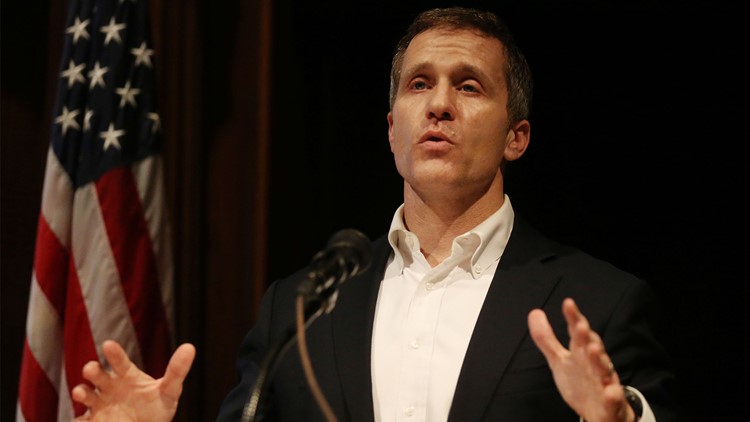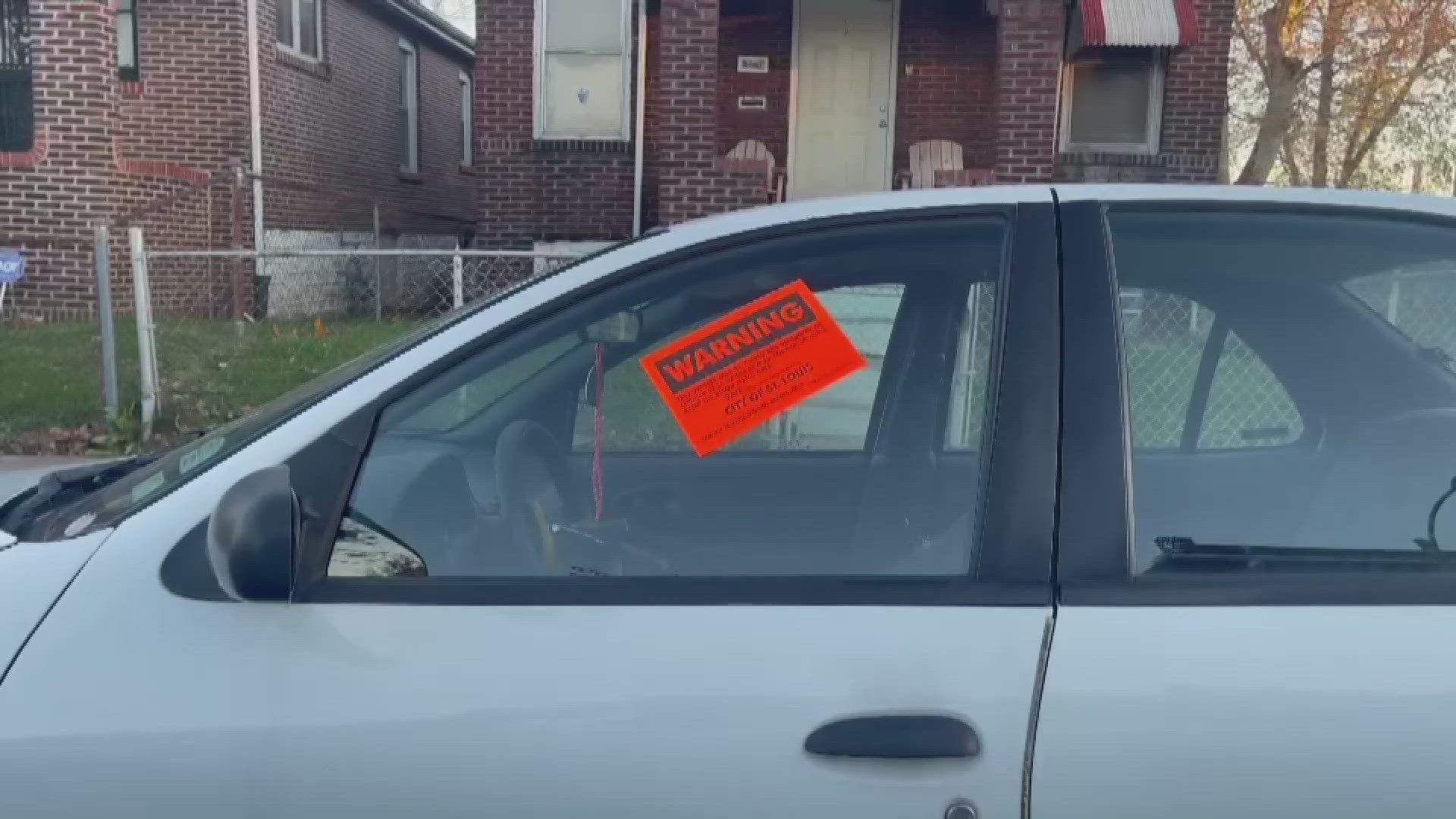ST. LOUIS (AP) — When a public official admits to an extramarital affair, word spreads quickly, and so do negative opinions.
Thus the challenge that the judge and lawyers faced Monday as the third day of jury selection plodded along in the trial of Missouri Gov. Eric Greitens. The first-term Republican governor is charged with felony invasion of privacy for allegedly taking and transmitting a photo of an at least partially nude woman without her permission in 2015.
If convicted, Greitens could face up to four years in prison. He's denied criminal wrongdoing.
Opening arguments had been expected to begin Monday. Instead, attorneys were still working through the first phase of jury selection as Greitens' attorneys methodically questioned people about their beliefs. A second phase will winnow the panel down to 12 jurors and three alternates.
More than half the prospective jurors were being dismissed during initial screenings — some for displaying biases and others due to busy lives. Of those who have advanced to the next selection phase, some did so only after extensive questioning about being able to set aside opinions and discern the facts.
Greitens' attorney Scott Rosenblum has been particularly focused on any potential jurors with preconceived opinions, even those who have said under repeated questioning that they could be objective and unbiased while hearing testimony.
Legal experts say it's nearly impossible in high-profile cases to find jurors who know nothing of the basic facts.
"The law does not require a jury of 12 ignoramuses; it doesn't require a jury of 12 people who have lived in a cave," said University of Missouri law professor Frank O. Bowman III. "The law plainly permits jurors who have actually a fair degree of familiarity with the publicity around a notorious case, so long as the judge is satisfied that the person can judge the facts as presented in the courtroom."
Prospective jurors seldom made eye contact with Greitens on Monday. A few clearly didn't like him. One woman was asked whether she could still be fair despite her knowledge of the criminal charges against him. "No," she resoonded.
Another woman acknowledged having an unfavorable opinion about Greitens because of his extramarital affair but initially said she could be objective. After nearly 15 minutes of questioning from Rosenblum, the woman conceded that Greitens would "start with a disadvantage" because of her beliefs.
"I am able to follow the court's instructions. Will there always be something in the back of my mind? That's possible," the woman said.
Both women were dismissed.
Assistant Circuit Attorney Ronald Sullivan, a Harvard University law professor who is helping prosecutors, said Greitens' defense was trying to establish an impossible standard.
"The law is clear: Opinion alone isn't enough to disqualify," Sullivan said in court.
Also dismissed Monday — at the request of prosecutors — was a man who is a member of the St. Louis Republican committee, though a woman who described herself as a liberal who disagrees with Greitens' policies was allowed to advance.
Circuit Judge Rex Burlison said the man's party leadership role "may bring more politics than should be" to the case.
Greitens has rejected calls to resign from both Republicans and Democrats since he first admitted in January that he had an affair before he was elected governor in 2016.
The woman, who has been identified only as K.S. in court filings, has testified that Greitens bound her hands to exercise equipment in March 2015 in the basement of his St. Louis home, blindfolded her and removed her clothes before she saw a flash and heard what sounded like the click of a cellphone camera. She has said Greitens threatened to disseminate the photo if she spoke of their encounter but later told her he had deleted it.
Greitens' indictment in February prompted the Missouri House to launch its own investigation. It released a report in April containing more testimony from the woman that Greitens had restrained, slapped, shoved, threatened and belittled her during a series of sexual encounters that at times left her crying and afraid.
The committee released a second report May 2 with testimony about how Greitens' gubernatorial campaign had used a donor list from The Mission Continues without the permission of the St. Louis-based veterans' charity he founded. Greitens also faces a felony charge in St. Louis for disclosing the donor list to his political fundraiser, though no trial date has been set.
As the House panel continues its investigation, Greitens' campaign attorney Catherine Hanaway said Monday that she had turned over more than 14,000 documents related to emails from the Greitens campaign and political aide Austin Chambers. But Hanaway said she believes a subpoena issued to A New Missouri — a secretive committee that supports Greitens' agenda — is "beyond the scope of the investigation" by the House.
House investigatory committee chairman Rep. Jay Barnes said it is considering how to enforce the subpoena.
___
Lieb reported from Jefferson City.



